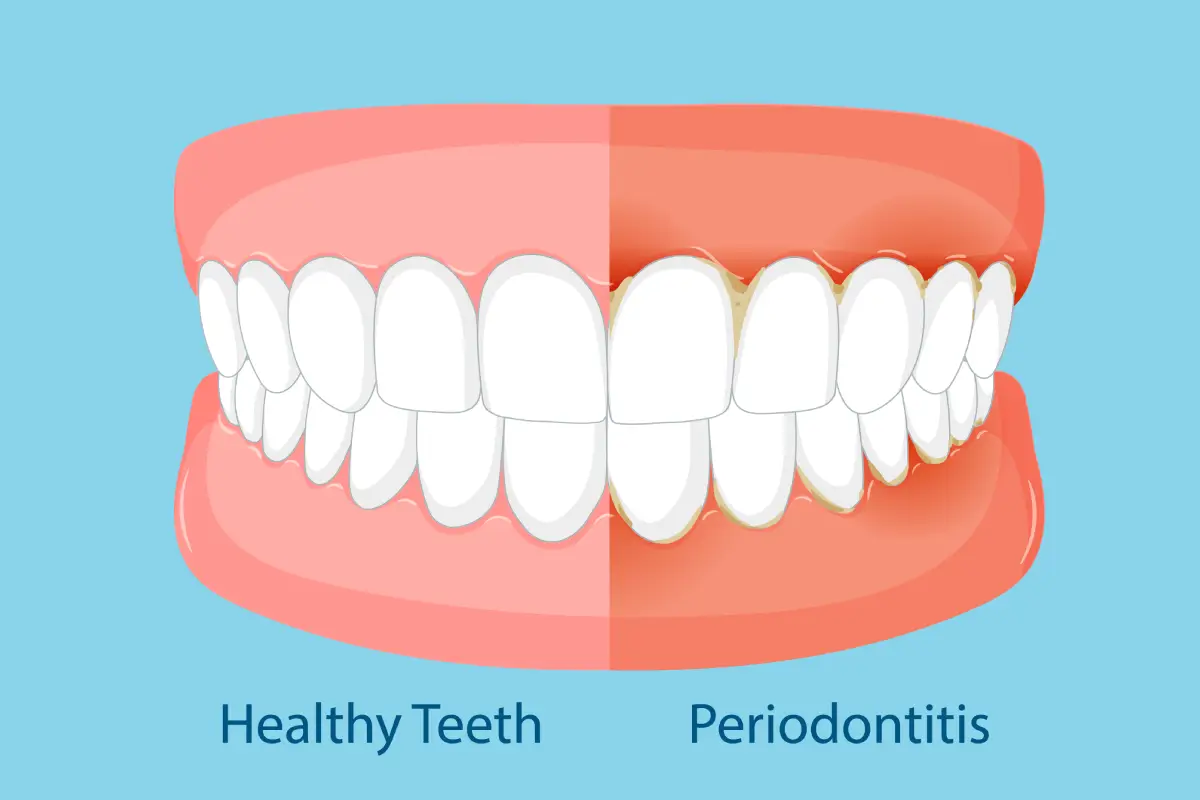


If you’ve noticed bleeding gums, persistent bad breath, or tenderness when brushing, you may be showing early signs of gum disease. Gum Disease Treatment in Gresham, OR, caring dental team is here to help you take control of your gum health before it progresses.
We provide gentle, advanced gum disease treatments for patients across Gresham, Portland, Troutdale, Fairview, and the surrounding areas — designed to restore your oral health, prevent tooth loss, and protect your smile for life.

Gum disease (periodontal disease) is an infection of the tissues that hold your teeth in place. It often starts silently, but when left untreated, it can lead to gum recession, bone loss, and even tooth loss.
There are two main stages:
Even though gum disease is common, it’s also preventable and treatable — especially when caught early.
At Premier Dentistry, we believe you deserve personalized care and lasting relief — not just a quick fix.
Here’s what makes our periodontal care different:
Your comfort and confidence are our top priorities. Whether you’re in pain, worried about bleeding gums, or simply due for a checkup — we’ll guide you every step of the way.
If you experience any of these symptoms, it’s best to schedule an exam soon:
These symptoms can progress quietly, but professional evaluation can catch gum disease early — when it’s easiest to treat.
At Premier Dentistry, we know gum disease can cause discomfort and worry — but it’s treatable. Our team offers gentle, personalized care to restore your gum health and prevent further damage.
For early stages, a professional cleaning may be enough to remove plaque and stop irritation. If the infection runs deeper, we perform scaling and root planing (deep cleaning) to clear bacteria below the gum line and help your gums heal naturally.
We may also recommend antibiotic therapy or laser treatment to control infection and speed recovery with minimal discomfort. For advanced cases, we work closely with trusted periodontists in the Gresham–Portland area to ensure you receive the most complete care possible.
Your comfort and long-term gum health are always our top priorities.
Want to know what happens after treatment?
Stay tuned for our upcoming blog post: “Gum Disease Aftercare”
After gum disease treatment, maintaining good oral hygiene is the key to long-term success. Here’s how to keep your gums healthy:
Healthy gums don’t just protect your smile — they support your overall health, too.
Want to learn more about recovery tips and what to expect after treatment?
*Watch for our upcoming blog post: “Life After Gum Disease Treatment: How to Maintain Healthy Gums for Good.”
We understand that visiting the dentist for gum treatment can make some patients nervous. That’s why we focus on comfort, clear communication, and compassionate care at every visit.
From the front desk to the treatment room, you’ll feel supported by a team that listens, explains, and ensures your peace of mind. Many of our patients from Gresham and nearby Portland say they wish they’d come sooner once they see how easy and comfortable modern gum care can be.
Early-stage gum disease (gingivitis) can be reversed with professional care and good home habits. Advanced gum disease (periodontitis) can be managed to prevent further damage.
Most procedures are done under local anesthesia, and patients report little to no discomfort. Laser treatments can further minimize sensitivity and speed up healing.
Mild cases heal within a few days. More advanced treatments may require follow-up visits, but you can typically return to normal activities right away.
If proper home care and maintenance visits are followed, gum disease can be controlled long-term.
Most dental insurance plans cover deep cleanings and maintenance for periodontal disease. Our staff will help you verify your coverage before starting any procedure.
Don’t wait until your symptoms worsen — early treatment is the best way to protect your gums and your smile.
Ready to find your dentist near me in Gresham? At Premier Dentistry, we’re excited to welcome you to our dental clinic.
Don’t wait—join the Premier Dentistry family today and experience why we’re the top Gresham dentist for new patients.